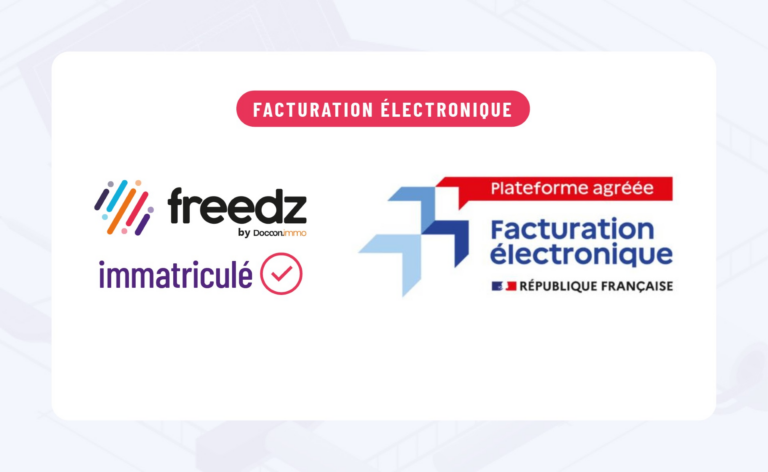Autorité PEPPOL française : un nouvel élan pour la facturation électronique
Stéphane EUSTACHE, directeur du programme de la facturation électronique et Sébastien Rabineau directeur du projet facturation électronique au sein de la Direction Générales des Finances Publiques (DGFiP) ont officiellement annoncé la création de l’autorité « PEPPOL France » et d’un groupe de travail sur la norme « AFNOR PEPPOL ». Une nouvelle attendue par les acteurs numériques de la facturation électronique.
Cette annonce est dans la droite ligne du communiqué du 15 octobre 2024 où l’administration avait annoncé son souhait de s’appuyer sur les Plateformes de Dématérialisation Partenaires (PDP) plutôt qu’une plateforme étatique nationale mise à disposition gratuitement (le PPF).
Que peut-on attendre de cette annonce, quelles conséquences a-t-elle sur les entreprises dans le cadre de la réforme de la facturation électronique ? Cet article fait le point sur la question alors que les acteurs économiques accélèrent leur transition pour être prêts au 1er septembre 2026, 1ère date du calendrier progressif d’entrée en application de la réforme.
Rappel : qu’est-ce que PEPPOL ?
PEPPOL signifie « Pan-European Public Procurement OnLine », il s’agit d’un projet lancé en 2007 par la Commission européenne pour développer l’échange électronique de documents vers les marchés publics européens en s’appuyant sur un processus d’échange, des normes, un réseau de transport et un réseau de partenaires. Le but était alors de donner la possibilité aux entreprises de facturer et donc d’interagir commercialement plus aisément avec les administrations européennes dans le cadre d’appels d’offres.
PEPPOL est ainsi devenu un réseau fiable de transactions électroniques qui gère les échanges et les flux de données entre les acteurs économiques et les administrations. D’abord destiné aux échanges de flux entre les entreprises et les administrations européennes, le réseau PEPPOL s’est ouvert au BtoB et est aujourd’hui capable de prendre en charge 100% des factures BtoG et BtoB. Fait marquant, si PEPPOL est en mesure de traiter la facturation électronique, il permet aussi les échanges des documents administratifs et commerciaux entre acteurs du monde économique et dans leur relation avec les administrations.
C’est donc naturellement que les PDP ont collectivement décidé de s’appuyer sur le réseau PEPPOL pour s’échanger les factures, répondant ainsi à leur obligation d’interopérer entre elles. L’accroissement de leur rôle central dans la réussite de la réforme a pour suite logique de fédérer les acteurs numériques de la réforme au sein d’une autorité nationale. En outre, le choix du réseau PEPPOL par les PDP anticipe les obligations à venir sur l’échange de factures au niveau Européen à partir de 2030 (Directive VIDA). La création d’une autorité PEPPOL française avec un représentant de l’État permettra d’avoir un cadre clair de gouvernance pour gérer les flux en France.
Création de l’autorité PEPPOL française : quels avantages ?
On peut légitimement penser que la création de l’autorité PEPPOL française apportera plusieurs avantages significatifs, notamment :
- Une coordination centralisée : elle servirait de point central pour coordonner la mise en œuvre et le développement des Plateformes de Dématérialisation Partenaires (PDP) en France, assurant une approche cohérente et harmonisée.
- Établissement de normes et conformité : l’autorité pourrait établir et faire respecter des normes de conformité, garantissant que tous les PDP opèrent selon les mêmes standards élevés d’interopérabilité et de sécurité. Sans un cadre normatif clair, les PDP risquaient de rencontrer des difficultés à assurer la fluidité des échanges.
- Soutien technique et réglementaire : elle fournirait un appui aux acteurs économiques locaux, facilitant leur intégration dans le réseau PEPPOL et maximisant les avantages de l’échange électronique de documents.
- Promotion de l’interopérabilité : en encourageant la coopération entre les différentes PDP et l’adoption de normes communes, l’autorité renforcerait l’interopérabilité du réseau, au profit du dynamisme économique des entreprises.
- Gouvernance et contrôle : l’autorité permettrait une meilleure gestion des acteurs au sein du réseau, offrant un contrôle accru et une meilleure visibilité sur les transactions.
- Propagation des exigences : grâce au système SMP/SML 1, l’autorité pourrait propager instantanément ses exigences à l’ensemble du réseau global, assurant une mise en conformité rapide.
- Facilitation des échanges transfrontaliers : l’adoption d’un cadre normatif commun simplifierait les échanges avec d’autres pays utilisant PEPPOL, renforçant la compétitivité européenne et internationale des entreprises françaises.
Que peut-on légitimement attendre de cette nouvelle autorité ?
L’adoption d’une autorité PEPPOL française représente une avancée significative pour les entreprises et l’écosystème de dématérialisation en France. Cette initiative apporte de nombreux avantages aux entreprises tout en améliorant considérablement l’interopérabilité entre les différentes Plateformes de Dématérialisation Partenaires (PDP). Pour les entreprises, l’un des principaux avantages de l’adoption d’une autorité PEPPOL française réside dans la simplification et l’harmonisation des processus. En établissant une coordination centralisée des efforts de mise en œuvre et de développement des PDP, cette autorité assure une approche cohérente et harmonisée dans tout le pays. Elle permet l’établissement de normes et de standards communs, réduisant ainsi la complexité liée à l’utilisation de systèmes et de standards variés.
Pour les acteurs économiques qui pourront s’appuyer sur l’interopérabilité des PDP, cela se traduit bien évidemment par une efficacité opérationnelle accrue, permettant aux entreprises d’automatiser leurs processus, de réduire encore plus significativement leur charge de travail et les coûts associés, tout en accélérant le traitement des factures et en minimisant les erreurs liées au traitement manuel. Chaque entreprise, quel que soit son secteur, pourra ainsi échanger avec ses partenaires commerciaux en étant libre de choisir en toute indépendance son partenaire de dématérialisation des factures. Mieux encore, les utilisateurs pourront choisir et changer librement de prestataire PDP sans impact sur leurs échanges de factures.
En assumant le rôle d’autorité PEPPOL, la DGFiP pourra ainsi assurer une gouvernance pérenne et renforcer la connectivité des PDP avec l’écosystème européen et international. Un élément important pour les entreprises qui ont des activités et/ou des implantations internationales. La facilitation des échanges transfrontaliers et internationaux ouvre de nouvelles opportunités de croissance et d’expansion pour les entreprises françaises.
Création d’une commission AFNOR
Les autorités ont également annoncé la création d’un groupe de travail sur la norme « AFNOR PEPPOL » qui reprendra une partie des travaux qui étaient auparavant traités dans le cadre des spécifications externes, et en particulier les travaux sur les cas d’usage. Cette norme devrait également servir de référentiel d’audit pour la labellisation des PDP.
En outre, une nouvelle version de ces spécifications externes prenant en compte la disparition du Portail Public de Facturation (PPF) a été présentée. Pour le moment, il est prévu que cette nouvelle mouture ne précise pas les règles de gestion à appliquer lorsque le récepteur de facture n’a pas choisi sa PDP.
En conclusion, l’adoption d’une autorité PEPPOL française devrait apporter des avantages significatifs aux entreprises tout en améliorant considérablement l’interopérabilité entre les PDP. Cette initiative créerait un écosystème électronique robuste et harmonisé, offrant aux entreprises une efficacité accrue, une meilleure sécurité et une compétitivité renforcée. L’amélioration de l’interopérabilité garantirait une véritable portabilité, permettant aux utilisateurs de choisir et de changer librement de prestataire PDP sans impact sur leurs échanges de factures. Cette approche globale et coordonnée positionnerait la France comme un leader dans la dématérialisation et l’échange électronique de documents, bénéficiant à l’ensemble de l’économie nationale.
Grâce à son immatriculation PDP, Neovacom, éditeur de Freedz, se positionne comme un acteur clé de la digitalisation des processus de facturation pour ses clients dans les secteurs de l’immobilité et du bâtiment. Vous souhaitez gagner en efficacité et productivité tout en réduisant vos coûts ? Ou tout simplement en apprendre davantage sur notre solution ? N’hésitez pas à contacter notre équipe.
(1) L’infrastructure de transport de PEPPOL repose sur 2 composants techniques essentiels, le SMP et le SML qui permettent l’adressage des factures dans le réseau à la façon d’un DNS ou d’un répertoire téléphonique Internet. (Source : https://www.tacdcartena.org/)
Autres articles qui pourraient vous intéresser :

Situation de travaux : 8 blocages qui tuent vos chantiers… et comment Freedz les élimine !

Facturation électronique 2026 : la checklist “zéro oubli” pour un bailleur social


